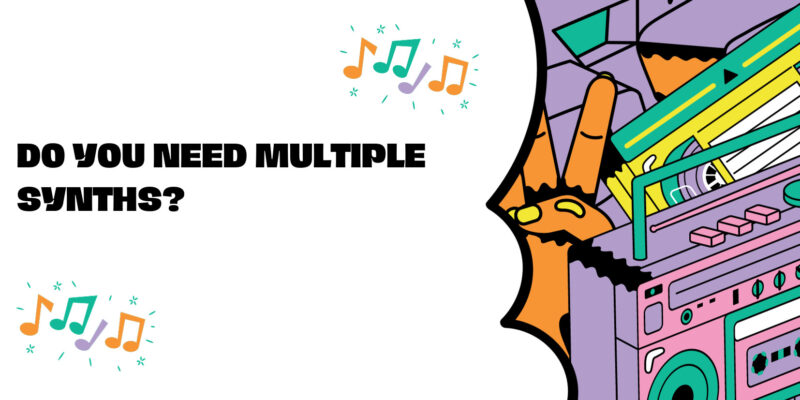Synthesizers, those versatile machines capable of sculpting aural landscapes, have captivated musicians and sound enthusiasts for decades. While one synthesizer can open up a world of creative possibilities, the question often arises: do you need multiple synths? In this article, we will explore the reasons for and against owning multiple synthesizers to help you decide whether expanding your collection is the right choice for your musical journey.
The Case for Multiple Synthesizers:
- Diverse Sonic Palette: One of the primary reasons for owning multiple synthesizers is the desire for a broader sonic palette. Different synthesizers offer unique timbral characteristics, from warm analog tones to crystalline digital textures. Having a variety of synths allows you to access a wider range of sounds, enhancing your creative possibilities.
- Specialization: Synthesizers come in various types, each suited to specific applications. For example, analog synths excel at producing fat basses and lush pads, while digital synths can emulate acoustic instruments with precision. Owning specialized synthesizers can ensure that you have the right tool for the job, whether you’re crafting a specific sound or experimenting with new sonic territories.
- Inspiration and Creativity: Each synthesizer has its own interface, controls, and idiosyncrasies. Owning multiple synths can be a wellspring of inspiration, as exploring different instruments can lead to unique musical ideas and creative breakthroughs. The tactile experience of interacting with various synthesizers can also stimulate your creativity.
- Layering and Texture: Multiple synthesizers enable you to layer sounds, creating complex and textured compositions. This layering can add depth and richness to your music, allowing you to blend different timbres and create lush soundscapes.
- Live Performance: Musicians who perform live often find that owning multiple synths is essential for recreating their studio-produced tracks onstage. Having dedicated synths for specific parts of a performance ensures seamless transitions and versatility during live shows.
The Case for a Single Synthesizer:
- Focused Learning: Learning to master a synthesizer takes time and effort. Owning multiple synths simultaneously can spread your attention thin and make it challenging to become proficient with any one instrument. Starting with a single synthesizer allows you to focus on mastering its capabilities.
- Cost: Synthesizers can be expensive investments. Acquiring multiple synths can strain your budget, especially if you’re looking for high-quality instruments. Owning one synthesizer that suits your immediate needs can be a cost-effective way to get started.
- Portability and Space: Multiple synthesizers can take up a significant amount of physical space, making it challenging to set up a dedicated studio or practice area. If you have limited space or need to be mobile, a single synth may be more practical.
- Sound Design Mastery: Many seasoned synthesists prefer to master a single synthesizer completely, exploring its deepest sound design possibilities. A deep understanding of one synth can lead to remarkable sound design and musical results.
Conclusion: Finding Your Synthesis Balance
Ultimately, whether you need multiple synthesizers depends on your musical goals, preferences, and resources. Some musicians thrive on the sonic diversity and inspiration that multiple synths provide, while others prefer the depth and mastery that come with focusing on one instrument. The key is to strike a balance that aligns with your creative vision and allows you to express yourself fully in the world of synthesis. Whether you choose to expand your synth collection or dive deeper into a single instrument, the journey of sound exploration and musical discovery is what truly matters.


